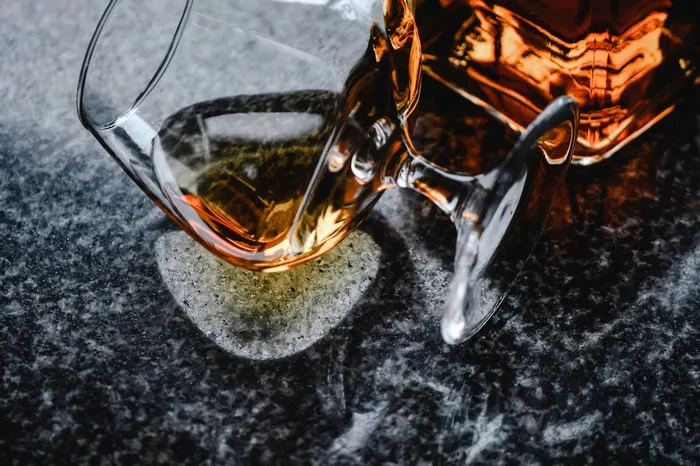When it comes to alcoholic beverages, individuals often debate whether cocktails or wine possess a higher potency. The question, “Are cocktails stronger than wine?” frequently arises in social settings, fostering discussions about alcohol content, serving sizes, and the impact on intoxication levels. Understanding the nuances between these libations is crucial in assessing their strength and effects on the body.
Alcohol Content: A Key Determinant
The first factor to consider in determining whether cocktails are stronger than wine is alcohol content. Cocktails typically consist of a combination of spirits, mixers, and often syrups or liqueurs, resulting in varied alcohol concentrations. In contrast, wine predominantly contains ethanol, usually in the range of 9-16% alcohol by volume (ABV) for table wines, whereas fortified wines can reach 20% ABV.
Cocktails, on the other hand, can significantly surpass these percentages. Mixed drinks like Long Island Iced Teas or Margaritas may contain multiple types of spirits, elevating their alcohol content to 15-30% ABV or even higher. Thus, in terms of sheer alcohol concentration, cocktails have the potential to be stronger than wine.
Serving Size Discrepancies
Another pivotal aspect influencing the comparison between cocktails and wine is serving size. A standard serving of wine typically consists of five ounces, containing a predictable amount of alcohol, given its ABV. Conversely, cocktails vary greatly in size and composition, making it challenging to gauge their alcohol content accurately.
Mixed drinks often come in varying sizes and may be served in smaller or larger portions, affecting the overall alcohol intake. Some cocktails, such as shots or shooters, concentrate high amounts of alcohol in a small volume, delivering a potent punch in a single serving. Consequently, the perceived strength of cocktails versus wine can be skewed by differences in serving sizes and variations in alcohol content.
Absorption Rate and Intoxication
Beyond alcohol content and serving size, the rate at which the body absorbs alcohol also plays a significant role in determining the strength of cocktails compared to wine. Factors such as the presence of food in the stomach, individual metabolism, and hydration levels influence how quickly alcohol enters the bloodstream.
Cocktails, particularly those with higher alcohol concentrations, can lead to rapid intoxication due to the quicker absorption of alcohol. Conversely, the gradual sipping of wine, often enjoyed with meals, allows for slower absorption, potentially delaying the onset of intoxication despite a similar overall alcohol content.
Mixers and Dilution Effect
The inclusion of mixers in cocktails introduces another layer to the debate regarding their strength relative to wine. While mixers can add volume and flavor complexity to cocktails, they also dilute the overall alcohol concentration. Beverages like gin and tonics or vodka sodas contain mixers that can significantly lower their alcohol content compared to straight spirits, even though they may seem similar in appearance and serving size.
Conversely, wine, particularly when served neat without dilution, maintains a consistent alcohol concentration. However, wine-based cocktails, like sangrias or spritzers, involve dilution with juices or carbonated beverages, potentially reducing their overall alcohol content compared to pure wine.
Impact on Intoxication and Health Risks
Understanding the strength of cocktails versus wine is crucial in assessing their impact on intoxication levels and potential health risks. The rapid absorption of alcohol from cocktails can lead to quicker inebriation, affecting coordination, judgment, and cognitive abilities more rapidly than consuming wine at a similar ABV.
Moreover, higher alcohol concentrations in cocktails may increase the risk of alcohol-related health issues, such as liver damage, addiction, and cardiovascular problems if consumed excessively. While moderate consumption of wine has been associated with potential health benefits due to antioxidants like resveratrol, excessive intake of any alcoholic beverage can negate these advantages and pose health risks.
Cultural and Social Context
The perception of strength between cocktails and wine also varies within cultural and social contexts. Cocktails, often associated with social gatherings, parties, and nightlife, might be perceived as stronger due to their connection with rapid consumption and diverse ingredients. In contrast, wine, frequently enjoyed in more relaxed settings, such as meals or sophisticated events, might be seen as milder due to its slower sipping pace and customary association with refined occasions.
Moreover, cultural norms and traditions influence the perceived strength of these beverages. In regions where wine is deeply embedded in culinary traditions, its consumption might be viewed as moderate and culturally acceptable compared to cocktails, which could be associated with excess and faster intoxication.
Regulation and Standardization
Understanding the strength of alcoholic beverages also involves recognizing regulatory standards set for their production and labeling. Most countries have regulations specifying the maximum alcohol content allowed in various beverages, including wine and spirits. However, cocktails, due to their myriad combinations and lack of standardized recipes, often lack consistent labeling or regulation, making it harder for consumers to assess their potency accurately.
Wine, being a regulated product with clear labeling requirements, offers consumers a more straightforward understanding of its alcohol content based on the labeled ABV. This transparency aids consumers in making informed decisions about their alcohol consumption compared to the relative ambiguity surrounding the potency of cocktails.
Conclusion
In conclusion, the comparison between cocktails and wine regarding strength is multifaceted, encompassing factors such as alcohol content, serving sizes, absorption rates, mixers, health impacts, cultural contexts, and regulatory standards. Cocktails, with their potential for higher alcohol concentrations and varied serving sizes, possess the capacity to be stronger than wine.
However, the perception of strength also hinges on individual consumption patterns, cultural influences, and societal contexts. While understanding the potency of these beverages is essential for responsible drinking, moderation remains paramount in mitigating the risks associated with alcohol consumption, regardless of whether one prefers cocktails or wine. Ultimately, making informed choices and consuming alcohol responsibly are fundamental to enjoying these beverages while prioritizing personal health and well-being.


